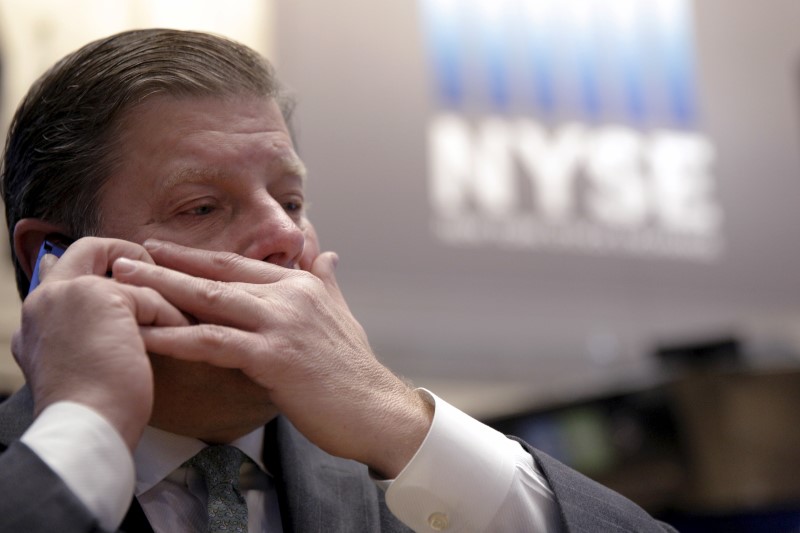Investing.com’s stocks of the week
By Yasin Ebrahim
Investing.com – The Dow moved off session lows on Wednesday, but remained under pressure as a trio of headwinds, including ugly economic data, worrisome earnings and a plunge in oil prices to an 18-year low, triggered a sea of red of across stocks.
The Dow fell 1.60%, or 383 points, but had fallen by as many as 716 points at the lows of the day. TheS&P 500 slipped 1.97% and the Nasdaq Composite fell 1.06%.
Underscoring the impact of the Covid-19 pandemic, retail sales in March plunged to their lowest ever reading as stay-at-home orders across several states and the closure of non-essentials business wreaked havoc on demand.
The Commerce Department said on Wednesday that retail sales fell 8.7% last month, confounding economists’ forecasts for a 8% decline. But the retail sales control group – which has a larger impact on U.S. GDP – rose 1.7%, compared with a forecast for a 2% decline.
Manufacturing activity in New York, which had already been under pressure pre-coronavirus pandemic, deteriorated further, plunging to a record low reading of -78.2.
Earnings from corporates, meanwhile, offered little reprieve, with quarterly results from Wall Street bank flagging more pain ahead
Goldman Sachs (NYSE:GS), Citigroup (NYSE:C) and Bank of America (NYSE:BAC) reported a widely expected plunge in profit, with latter leading the downside, falling more than 6%.
The trio of banks also increased their reserves for credit losses by billions of dollars amid expectations for a jump in loan defaults from customers in the coming months.
The selloff on Wall Street was paced by rapid selling in energy, as oil prices slipped below $20 a barrel to an 18-year low amid worries the recently agreed co-ordinated production cut will do little to offset the coronavirus-led to demand. The U.S. also reported a record build in weekly inventories.
In Europe, meanwhile, Germany said it will begin reopening its economy next week.
Germany will start reopening its economy on April 20, Chancellor Angela Merkel said, according to published reports. Large public events will be banned until August 31 at the earliest, while schools will start in early May.
